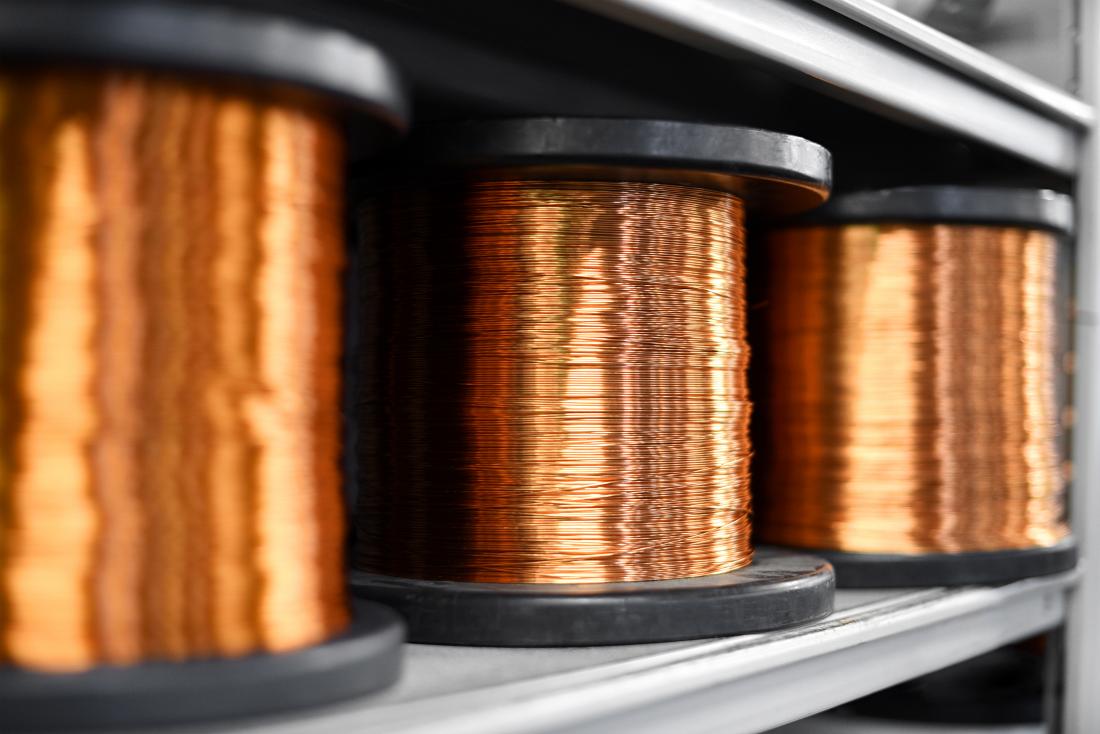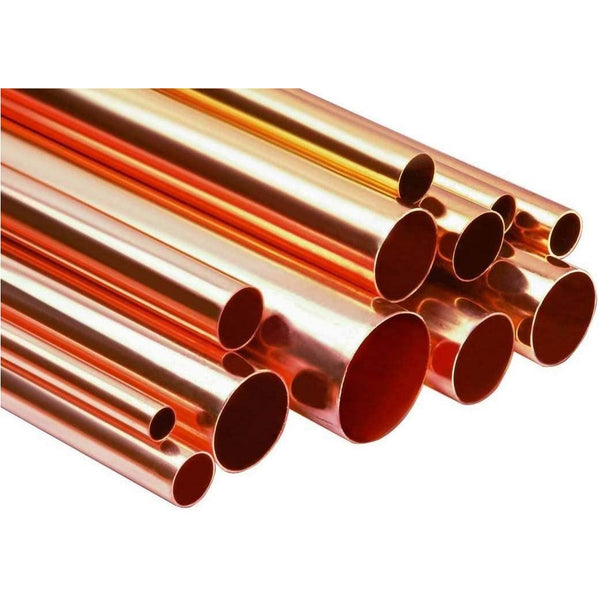Just how to Select the Right Copper Products for Your Do It Yourself Projects and Home Renovations
Just how to Select the Right Copper Products for Your Do It Yourself Projects and Home Renovations
Blog Article
Just How Copper Products Contribute to Lasting Practices in Different Industries
In sustainable power systems, for example, copper improves the performance of solar and wind technologies, while its application in construction reduces waste through longevity. As industries seek to embrace even more sustainable practices, the function of copper might show critical in accomplishing ecological goals.
Copper in Renewable Power
Copper plays a vital duty in the improvement of sustainable energy modern technologies, acting as a crucial conductor in numerous applications. Its remarkable electrical conductivity and resistance to deterioration make it a suitable material for electric circuitry, which is necessary in solar panels, wind turbines, and power storage space systems. In solar photovoltaic systems, copper is utilized in the affiliations and wiring, enabling reliable power conversion from sunlight to electricity.
In wind energy, copper is indispensable to the generators and transformers that transform kinetic power right into electric power, making sure optimum efficiency and dependability. Moreover, the demand for electric vehicles (EVs) is boosting, with copper being an essential part in batteries, motors, and billing framework. The shift to EVs dramatically improves the need for copper, as these automobiles typically use 4 times extra copper than traditional internal combustion engine automobiles.
As the world seeks to reduce environment modification and shift to sustainable energy resources, copper's duty comes to be significantly vital. The product not only enhances the performance and toughness of renewable power systems however likewise sustains the more comprehensive objective of lowering greenhouse gas exhausts and advertising a lasting future.
Eco-Friendly Construction Materials
In recent years, there has actually been a notable shift in the direction of the fostering of eco-friendly construction products in feedback to expanding ecological concerns. This adjustment is inspired by the demand for sustainable options that minimize eco-friendly footprints while keeping architectural integrity and visual allure.
Copper, recognized for its sturdiness and recyclability, has actually become a vital player in this market. It can be used in roof, pipes, and electrical systems, contributing to energy effectiveness and minimizing waste. Copper's longevity means fewer substitutes over time, more enhancing its sustainability account.
In addition, products such as bamboo, redeemed timber, and reused steel are acquiring appeal. These alternatives not only offer reduced environmental impact yet likewise promote source preservation. As building codes increasingly highlight sustainability, architects and home builders are incorporating these products right into their projects, promoting development in design.
The increasing fostering of green construction products reflects a wider dedication to sustainability in the developed environment. By focusing on these materials, the construction market can considerably minimize its carbon footprint, straighten with regulative criteria, and sustain a healthier ecosystem for future generations. This pattern marks a critical step in the direction of a much more lasting future in building.
Copper's Function in Health care
Recent researches have actually highlighted the substantial role of copper in medical care settings, particularly as a result of its antimicrobial buildings. Copper surfaces have been revealed to decrease the visibility of pathogens, consisting of microorganisms and viruses, by approximately 99.9% within a here short period. This amazing effectiveness makes copper an indispensable product for high-touch surface areas in hospitals, such as doorknobs, bed rails, and IV poles, thus adding to enhanced infection control actions.
Along with its straight antimicrobial results, copper additionally plays a duty in the broader context of medical facility sustainability (Copper Products). By integrating copper into clinical devices and home furnishings, medical care centers can reduce the occurrence of healthcare-associated infections (HAIs), which not just improves client end results but also lowers the expenses connected with extended healthcare facility stays and extra treatments
Additionally, copper's resilience and recyclability line up with lasting practices, enabling liable source administration. As healthcare systems significantly focus on both individual safety and security and environmental stewardship, the assimilation of copper items is becoming much more prevalent. This double benefit emphasizes copper's important payment to a healthier, much safer, and more sustainable medical care setting.
Sustainability in Transportation

Furthermore, copper's toughness and corrosion resistance add to the long life of transport facilities (Copper Products). In rail systems, for example, copper elements boost the dependability and effectiveness of signaling and power systems, vital for reducing hold-ups and energy consumption. Additionally, copper's role in renewable resource systems, such as solar and wind, supports lasting transportation options by giving clean power for electric transit options
Investments in copper modern technology not only foster sustainability yet also boost economic development and work production in environment-friendly industries. As industries strive to meet rigid environmental regulations, the application of copper products in transport emerges as an essential approach in attaining sustainability goals and advertising a cleaner, extra reliable future.
Copper and Round Economic Climate
As the world progressively embraces sustainability, the function of copper in the round economy comes to be ever before extra significant. Copper's inherent residential properties-- such as its recyclability, sturdiness, and conductivity-- setting it as a vital material in a resource-efficient economic situation. The round economic situation intends to decrease waste and make the most of resource use through recycling and reusing materials, and copper master this regard.
The steel can be reused indefinitely without loss of quality, making it an excellent prospect for sustainable methods throughout various markets, consisting of construction, electronic devices, and renewable resource. By recuperating and recycling copper from end-of-life products, industries can dramatically decrease the demand for virgin materials, thus reducing environmental influences connected with mining and processing.
Additionally, the combination of copper his comment is here into round economic situation frameworks not just preserves resources but likewise cultivates technology. Services that prioritize copper recycling add to a more sustainable supply chain, enhancing their competition while aligning with governing demands and consumer choices for eco liable items.
Final Thought
Finally, copper items dramatically add to lasting practices throughout numerous sectors. Their necessary function in improving renewable power technologies, advertising green building products, sustaining infection control in medical care, facilitating lasting transport, and personifying the concepts of a circular economic climate highlights the versatility and importance of copper. By integrating copper into different applications, industries can accomplish greater efficiency, decrease environmental influence, and straighten with global sustainability objectives, ultimately cultivating a more sustainable future.

Copper's exceptional conductivity makes it a recommended product in electric automobile (EV) systems, improving power performance and efficiency. In addition, copper's duty in sustainable power systems, such as solar and wind, sustains sustainable transport solutions by offering clean power for electric transit choices.
Their important role in enhancing eco-friendly energy innovations, promoting green building and construction products, supporting infection control in healthcare, promoting sustainable transportation, and embodying the concepts of a round economic situation highlights the versatility and value of copper.
Report this page